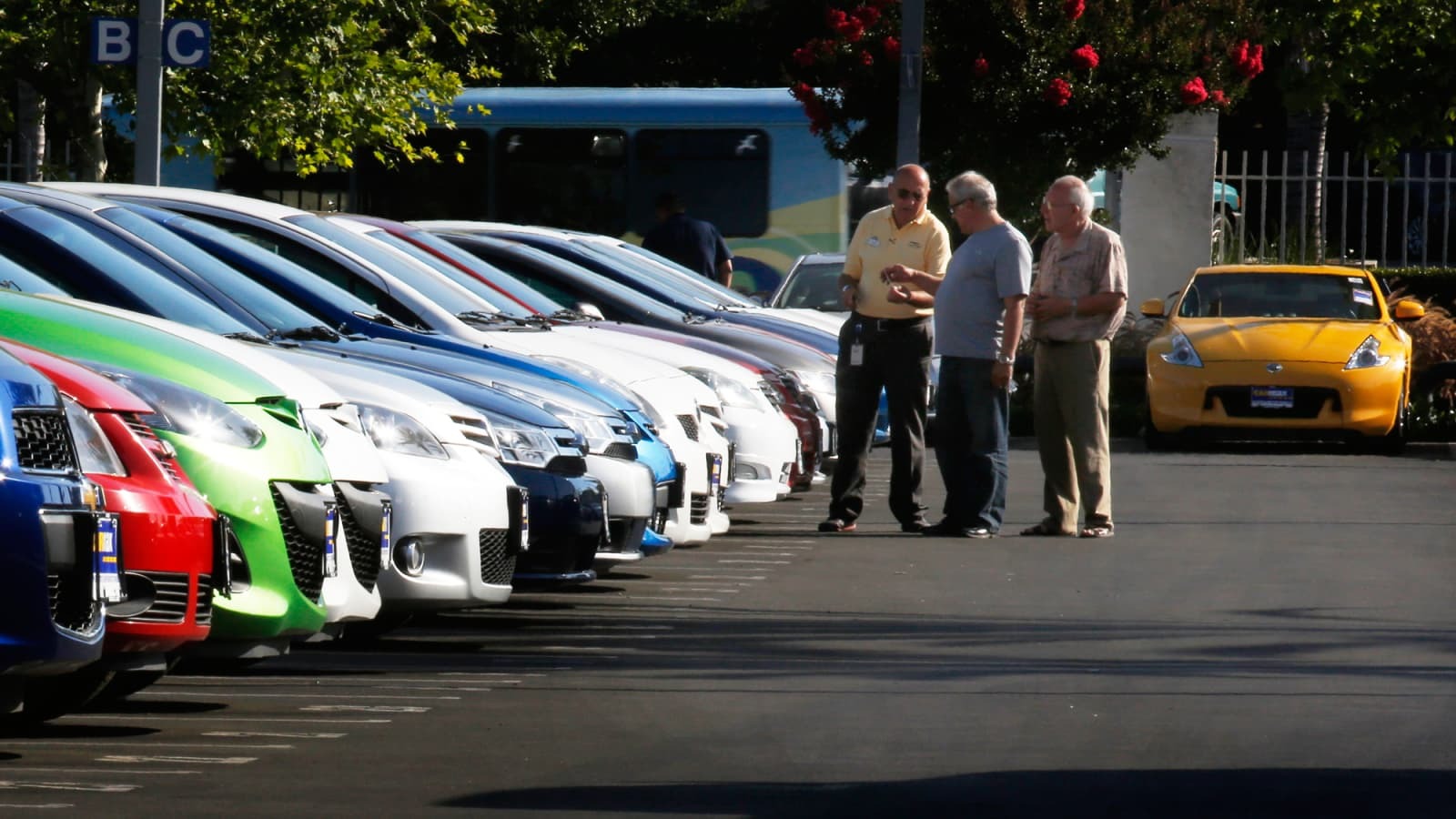The automotive industry in the UK faces a dynamic period ahead as it recovers from recent challenges. After grappling with pandemic-related setbacks, including decreased demand and inventory shortages, the sector is now also confronting the impact of the cost-of-living crisis.
These issues, combined with global inflation and geopolitical instability, have created a complex environment. However, there is a positive trend emerging, with car sales in the UK showing signs of cautious recovery.

Positive Sales Trends in New and Used Cars
October 2023 marked a huge turning point, as new car sales finally surpassed pre-pandemic figures. This occurred despite ongoing regulatory changes and uncertainties in the electric vehicle (EV) transition.
However, the used car market has not yet matched its pre-pandemic performance, remaining 9.3% below 2019 levels. Nevertheless, there has been a 5.5% increase in used car sales during Q3 2023 compared to a weak 2022.
There is optimism in the used car sector, particularly concerning second-hand battery electric vehicles (BEVs), which have seen an impressive 99.9% growth in sales over the last three months, capturing a 1.8% market share.
This upward trend marks the third consecutive quarterly increase and reflects both a recovering new car market and improved stock availability. Recent improvements in supply chain issues have positively influenced this trend, suggesting that the used car market is on a path of continued growth.
Also Read: Best Tips for Negotiating the Best Car Deal, New and Used Cars
Maintaining Momentum Despite Uncertainty
To maintain this positive trajectory in a climate of uncertainty, it’s essential for dealers to consider strategies that will allow them to adapt to changing market conditions. Exploring current and emerging automotive trends is crucial for manufacturers, dealers, and customers alike.
The Appeal of Hydrogen-Powered Cars
Fuel cell electric vehicles (FCEVs) present a compelling alternative to traditional BEVs. These vehicles generate electricity through an internal fuel-cell stack that combines hydrogen and oxygen, producing only water as a byproduct, thus ensuring zero emissions.
FCEVs can travel similar distances to internal combustion engine (ICE) vehicles, offering a range of 300-400 miles per tank and enabling rapid refueling.
While the concept of hydrogen-powered cars has been in development for decades, only a limited number of manufacturers, including BMW, Hyundai, and Toyota, currently offer FCEVs in the UK.
Despite this, some analysts predict a robust market potential, estimating that there could be up to 13 million fuel cell vehicles on the road by 2030.
Achieving this vision will require huge investment in infrastructure, as the current network of hydrogen stations in the UK is sparse, with only around 15 operational and fewer than 500 registered hydrogen-powered cars in the last decade.
Increasing Demand for Used Electric Cars
The market for second-hand BEVs is experiencing a known uptick, as more motorists opt for these vehicles. The government has observed that the used BEV market is steadily growing, with sales doubling in Q3, fueled by increased supply.
Plug-in hybrids (PHEVs) and hybrid electric vehicles (HEVs) are also performing well, achieving market share increases of 34.6% and 45.4%, respectively.
However, obstacles remain, such as range anxiety, inadequate charging infrastructure, and purchase costs. While running an EV is more economical than a combustion engine vehicle, the upfront costs deter many potential buyers.
The Rise of Connected Cars
Cars equipped with connectivity features are becoming increasingly popular. These vehicles can access the cloud through built-in systems, allowing for real-time data transmission.
They typically include infotainment systems, GPS navigation, and advanced driver assistance technologies. The adoption of 5G technology is driving growth in this sector, and it is anticipated that cars will become even more connected over time, leading to enhanced safety features and predictive maintenance.
Despite the benefits, challenges such as data privacy, cybersecurity, and regulatory compliance must be addressed. To unlock the full potential of connected cars, major investment in these areas will be necessary.
Changes in Car Buying Behavior
The Covid pandemic has transformed car-buying practices, making online purchases increasingly common. Prior to the pandemic, in-person car buying was the norm; now, 42% of buyers prefer purchasing vehicles online without any in-person interaction, according to Autotrader.
While traditional showroom sales remain important, the need for dealers to establish a strong online presence is vital, given that over 90% of buyers conduct online research before making a purchase.
The Importance of Personalised Video Content
Utilizing personalized video content can greatly enhance customer engagement in the car-buying process. This approach is particularly beneficial for used car buyers, as it fosters trust and transparency.
Advancements in AI technology are already aiding in the creation and distribution of such content, signaling a shift in how dealers interact with potential buyers.
Merging Online and In-Person Experiences
Consumers increasingly expect a blend of digital and in-person experiences when purchasing cars. Success will likely hinge on catering to both preferences, with dealers reinventing showrooms as “experience” centers.
This strategy can enhance the customer journey while incorporating sales approaches that balance online and offline interactions.
Anticipating Challenges for Car Dealers
Although the demand for cars remains steady, consumers are currently seeking lower-priced options. Many buyers are gravitating towards smaller, more affordable vehicles, particularly in the £6,000-9,000 price range. Dealers must adapt their stock to reflect this trend, ensuring they offer quality used cars at competitive prices.
Seasonal variations in demand can impact profitability, and early signs of a Christmas lull in 2023 indicate a need for dealers to prepare. However, the overall demand for second-hand cars is stronger than in the previous year, suggesting a positive outlook for the future.
Adapting to Regulatory Changes
Since 2021, it has been mandatory for consumer credit and broker firms to disclose commissions received from lenders. In July 2023, the Consumer Duty regulations came into effect, establishing new consumer protection standards within financial services.

These rules mandate that firms provide clear, timely communications, ensure products meet customer needs, and offer fair value. Incorporating regulatory compliance into business operations is crucial for fostering consumer confidence.
Non-compliance can lead to huge repercussions, underscoring the importance of making regulatory awareness a core component of the business model.
The Challenges Posed by ULEZ Expansion
The expansion of the Ultra Low Emission Zone (ULEZ) in London is creating distinct challenges for dealers. Some are struggling to sell non-compliant vehicles as demand dwindles within the zone, while others in Greater London are finding it difficult to move ULEZ-compliant models due to affordability issues.
Conversely, dealers located outside the zone are seeing strong sales of non-compliant cars. Therefore, there is no universal strategy for addressing ULEZ challenges; trends are highly localized, and dealers must closely monitor customer behavior in their areas.
Also Read: 20 Used Cars That Are Still Worth Buying
Strategies for Success in the Automotive Market
To thrive amid uncertainty, dealers should focus on offering quality stock that aligns with consumer purchasing trends while ensuring a strong customer experience. Staying informed about regulatory requirements will also play a vital role in maintaining success.
With increased investment in cleaner fuels, connected car technology, and supporting infrastructure, the future of the motor industry appears promising. Today’s car buyers prioritize value for money, comfort, longevity, and low or zero emissions.
If dealers can meet these expectations, provide transparent sales processes, and offer flexible payment options, they will remain competitive in the evolving market landscape.

